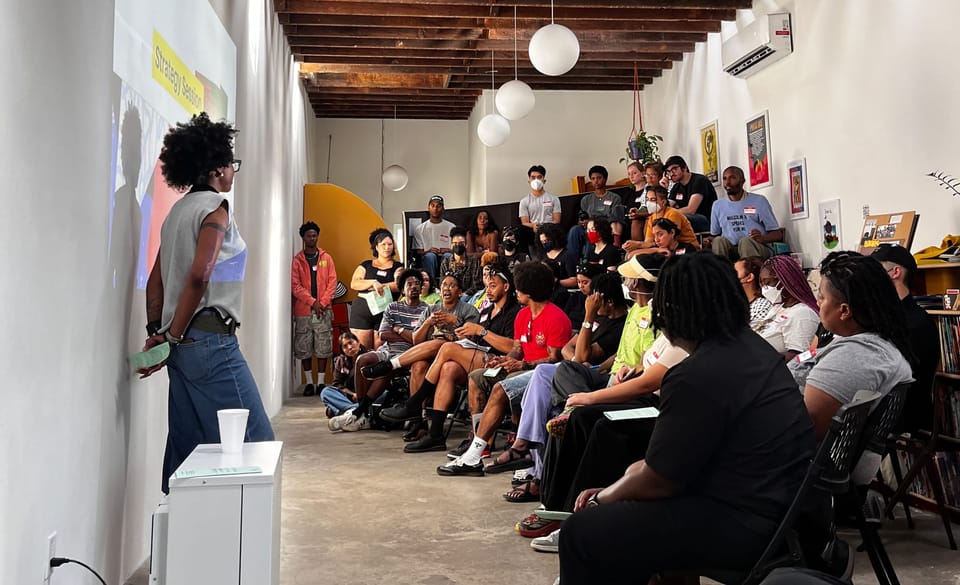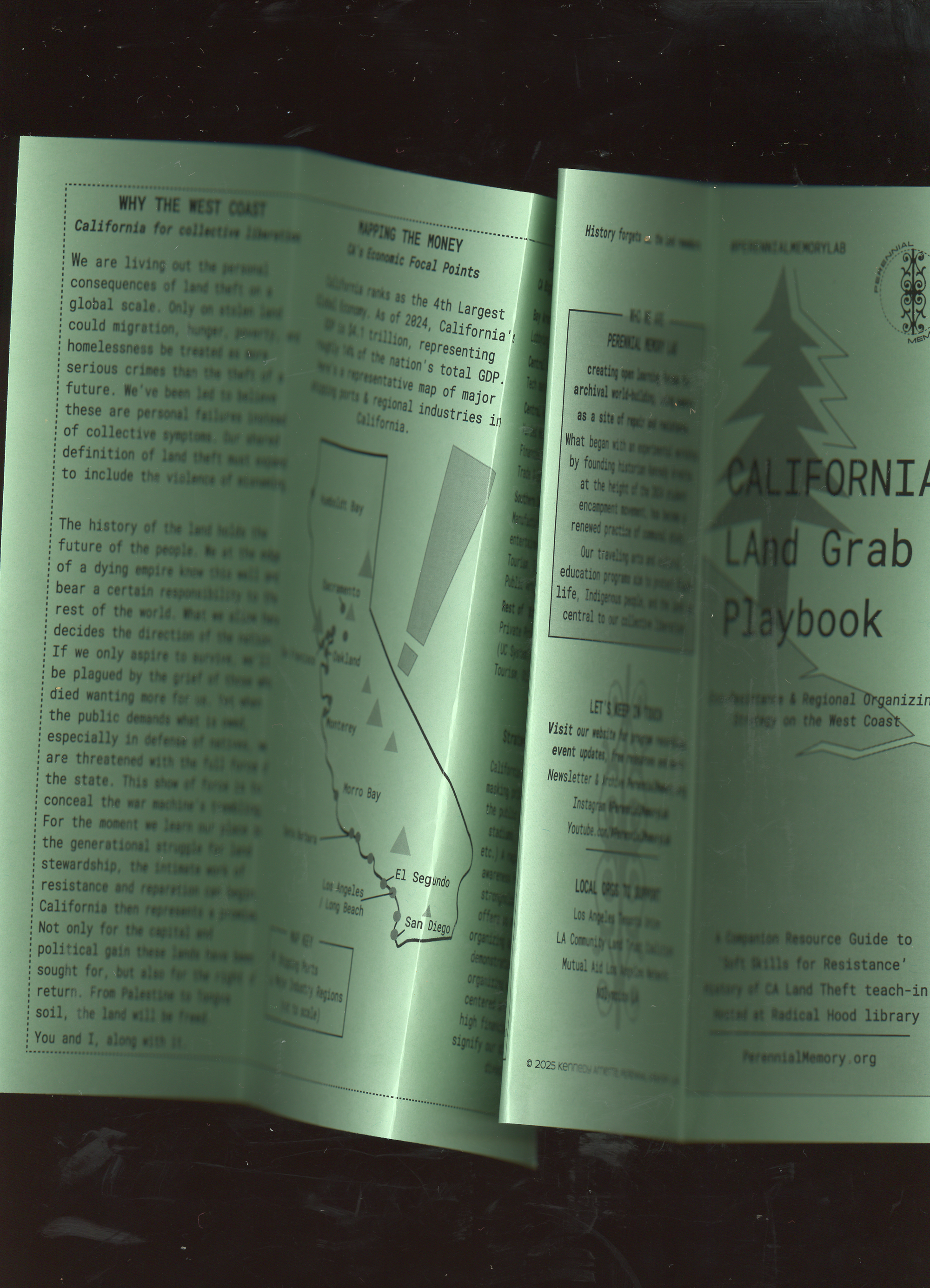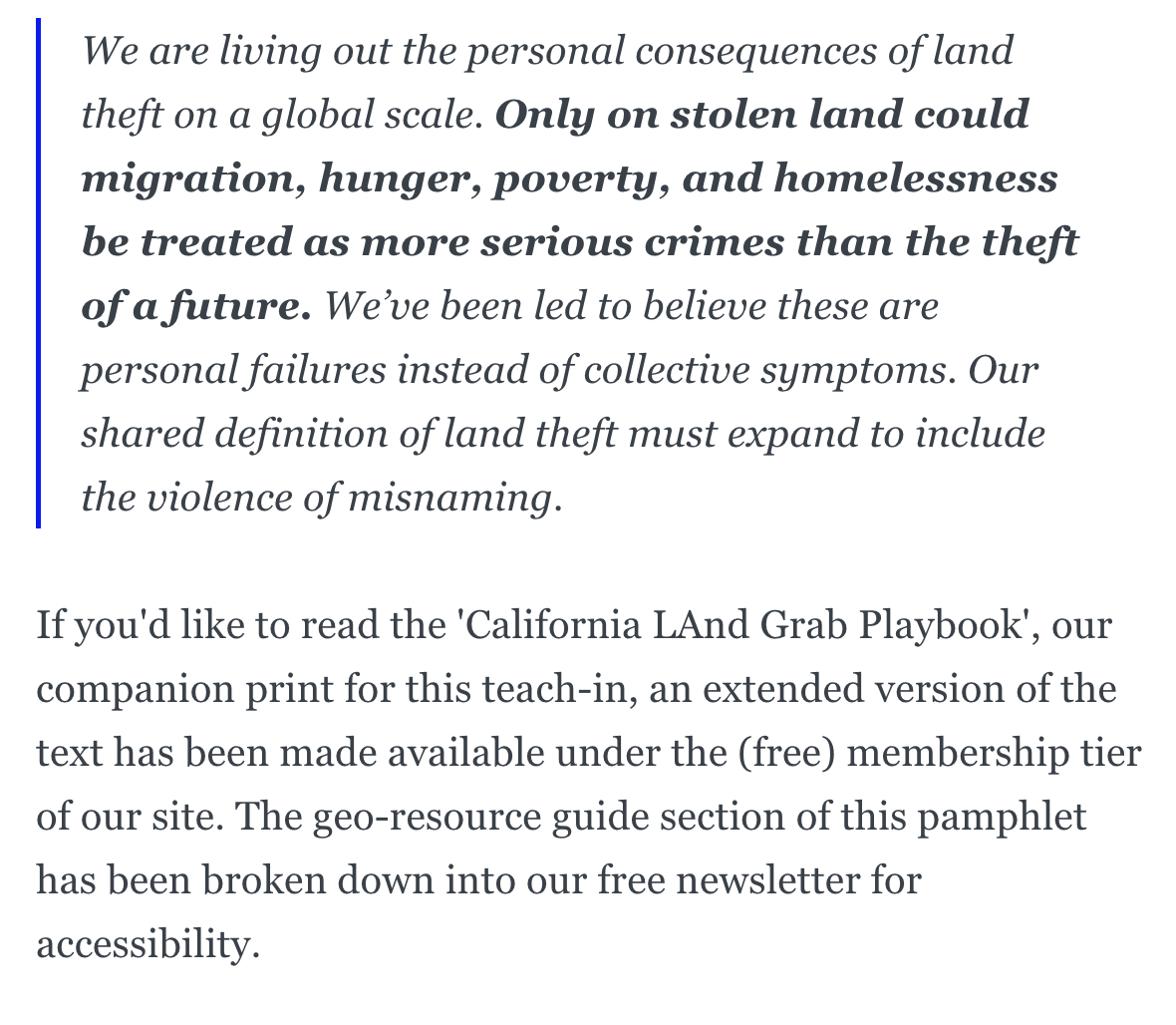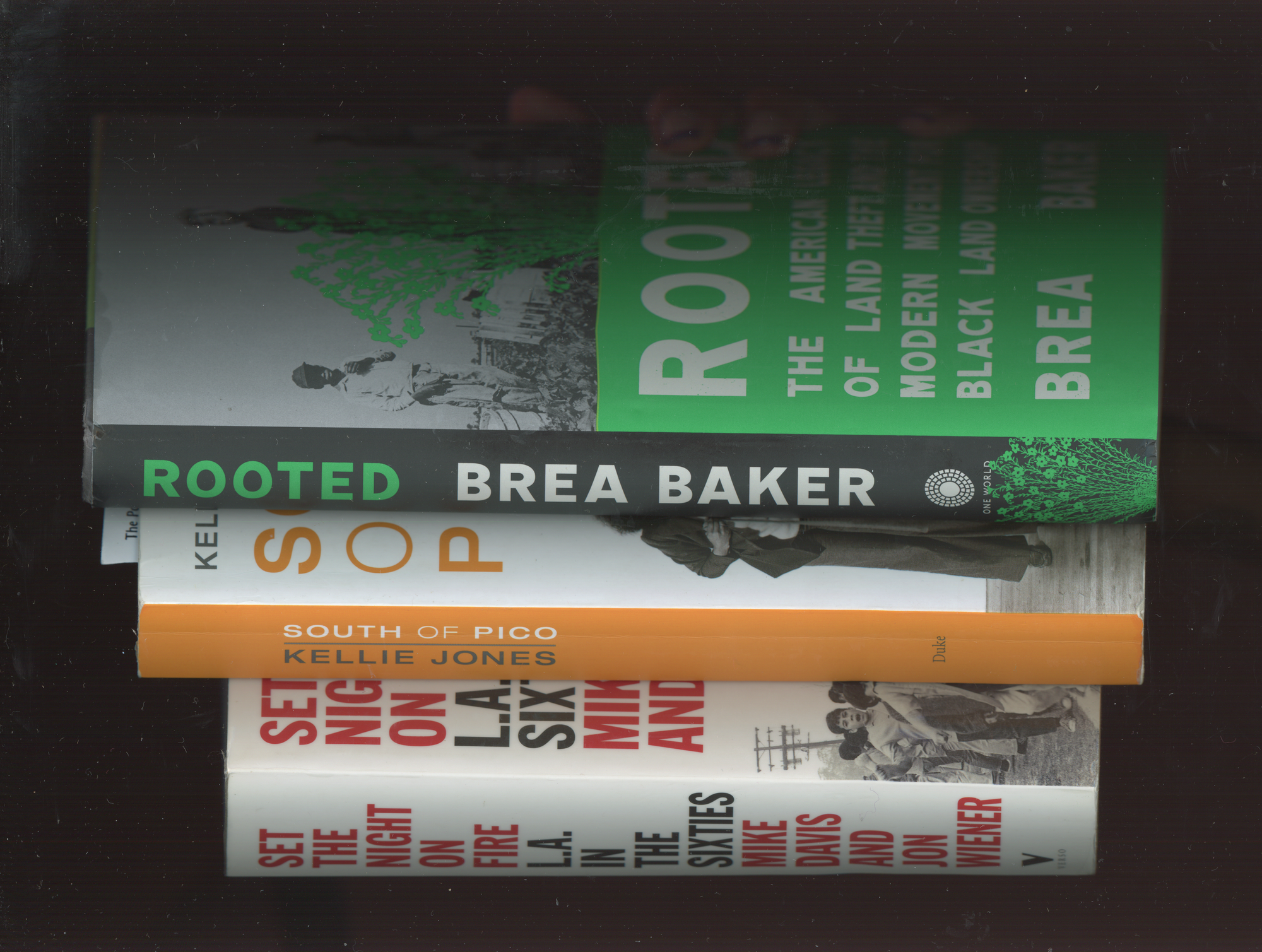Placemaking: Personal Geographies of Care & Resistance (Recap)

Resources + Perspective from the latest 'Soft Skills for Resistance' teach-in about the History of Land Grabs in California
Last Saturday at Radical Hood Library in Los Angeles, a time was had. Thank you to everyone who supported by spreading the word and those who were able to attend the event in person. Coincidentally held on the day of No Kings protests, this was the first Perennial program I've hosted since returning home to California post-election. I've been trying to understand why I felt so called to talk about the LAnd as an increasingly central part of my practice, but really, all things are in conversation with the place they were created. Here are some resources from our latest teach-in, with added perspective from my homecoming.
Why the West Coast? California for Collective Liberation
At the start of the teach-in, there was an acknowledgement of the active military on our streets and the very real risks associated with organizing in this climate. The focus of our program was adjusted to speak to this moment in the city as connected to the broader crisis. We moved through a timeline of relationship to the land, from California's indigenous stewards to the colonial resettlings that shaped the dominant culture of land use here today. These colonial events give context for the city's historic misuse of eminent domain, why our governor has long sought the Olympic bid as a part of his presidential ambitions, and how the nearing games contribute to the annexation of Altadena and other Black communities who are increasingly vulnerable to displacement.

We are living out the personal consequences of land theft on a global scale. Only on stolen land could migration, hunger, poverty, and homelessness be treated as more serious crimes than the theft of a future. We’ve been led to believe these are personal failures instead of collective symptoms. Our shared definition of land theft must expand to include the violence of misnaming.
If you'd like to read the 'California LAnd Grab Playbook', our companion print for this teach-in, an extended version of the text has been made available under the (free) membership tier of our site. The geo-resource guide section of this pamphlet has been broken down into our free newsletter for accessibility.

Recommended Reading

Continue the conversation with the texts that have become central to our study. Titles with asterisks beside them can be found in PML's drive or elsewhere online for free reading.
About Land & Social Ecology
- Pan Africanism, Land, and Power by Kwame Tuere (Essay) *
- Abolition Geography by Ruth Gilmore Wilson
- Rooted: The American Legacy of Land Theft & the Modern Movement for Black Land Ownership by Brea Baker
- Assembling California by John McPhee*
- An Island Called California: An Ecological Introduction to Its Natural Communities by Elna S. Bakker *
- Making Our Neighborhoods, Making Ourselves by George C. Galster
LA Specific
- South of Pico by Kellie Jones
- Set the night on fire: LA in the Sixties
- Sidewalking: Coming to Terms with Los Angeles by David L. Ulin*
Program Recordings + Group Study Playlists
In preparation for this program, I created some video playlists about Black Los Angeles and major CA displacement events to supplement the research materials shared. You can find playlists on our YouTube channel, and more program recordings will be posted there soon! Check out our first workshop demo on 'Creating Living Archives' in the meantime.
Upcoming PML Events
Friday June 20, 2025 – Prideteenth Chosen Family Panel + Communal Art Activity with PML founder Kennedy Arnette
Local Orgs to Support (LA)
- Coalition for Human Immigrant Rights LA
- Los Angeles Tenants Union
- Nolympics LA
- Los Angeles Community Land Trust Coalition
- Mutual Aid Los Angeles Network
Parting Thoughts
Please remember, to gather on these grounds is a sacred thing, especially with looming threats and increased surveillance. The real magic of these events doesn't come from anything I can teach or advertise. It comes from your desire to learn and be with one another. But as much as we seek understanding, the truths of our world today can weigh heavily on us.
After moving through our timeline with the added context of current events, there was a palpable sense of grief in the room. Where do we go from here? What role does memory serve in our healing if memory itself is imperfect? Is there a balance to be found between feelings of pride after surviving generations in our homeplace with the gruesome reality of our history, I took pause. My responses will be shared later with the program recording, but in hearing your questions and perspectives, I am reminded that grief is also sacred. Let it embolden you to action. Use it to hold who and what you love closer. To kindle your rage. To strengthen your mending. To water good seeds.
I'm still in awe at how this program came together at such a transformative time in our city, and I'm grateful to have been led back to my hometown to participate in the necessary changes. Even in the days that have passed since Saturday's teach-in, we've seen escalations that I could never have prepared myself for. The timing and curation of our programs often works out like that – led by intuition and an ancestral pulse that happens to match the present moment. I hope our programs encourage you to lean into the wisdom of the land and its many strange forms. It's becoming one of the great honors of my young life to be a part of the resistance in small and often unassuming ways. My role as a facilitator is always secondary to the energy and curiosity you bring. Thank you for supporting and taking interest in our work as a part of the greater currents in your life. Thank you. Thank you. Thank you.
Perennial Memory Lab remains dedicated to independent programming on all topics related to collective liberation through historical education. Especially given the enhanced surveillance of the state, we know this effort is only possible in solidarity with those of us who are the most vulnerable.
Member discussion